Perhaps you are like me, having grown up with the idea that “sticks and stones may break my bones but words can never hurt me”. It was a handy retort when dealing with schoolyard bullies and of course, it is true that words can’t hurt us physically. However, words do have a long-lasting emotional impact, they can be absorbed into our psyche and become empowering or majorly disempowering depending on what we embed.
Maya Angelou puts it beautifully, in her own inimitable style:
“Words are things. You must be careful, careful about calling people out of their names, using racial pejoratives and sexual pejoratives and all that ignorance. Don’t do that. Some day we’ll be able to measure the power of words. I think they are things. They get on the walls. They get in your wallpaper. They get in your rugs, in your upholstery, and your clothes, and finally into you.”
With her wise guidance, perhaps you are seeing the power of words? Since the 1980s, we’ve had a whole body of work and research called Appreciative Inquiry. It is probably worth many blogs to explore and share the value of appreciative inquiry and if you’ve participated in team-building exercises or reviews I’ve facilitated you will know already the power of this approach. For today, suffice to say that Appreciative Inquiry has 5 core principles, one of which is the Constructionist Principle. In essence, the constructionist principle states that we continuously create or construct stories about what is happening in our lives. Jackie Kelm explains it this way:
“We filter situations and people and everything that happens through the lenses of the unique assumptions and beliefs we’ve adopted from our families, culture, school, media, neighbors, friends, jobs, gas station attendants, telemarketers, and every other person, plant, animal, rock and institution with which we have had contact. …Each of us views the world through a set of glasses or filters that are as unique as snowflakes…The important point is that the stories we make up about our lives are just that: stories. They are just one perspective of what is happening.”

Work with our words
The power here is that when we know there is more than one story about what is going on we can look for the greater possibilities that are also always presents. And given that you and I are the ones creating our own stories, we are each the ones with the power to change our stories and consequently change our lives.
To break this down to something meaningful and actionable for today’s blog, I want to share some ways we can work with our words to enhance our lives.
The first idea comes from Don Miguel Ruiz, author of the book The Four Agreements. One of the agreements is to be impeccable with your word. Just in the cover of the book, he explains what this means: “Speak with integrity. Say only what you mean. Avoid using the word to speak against yourself or to gossip about others. Use the power of your word in the direction of truth and love.”

What would this look like in practice? When in conversation with another it could be like this:
- Taking time to listen
- Pausing & reflecting before responding
- Choosing words slowly and carefully, knowing that they hold within them the power to elevate the situation or cause it to disintegrate
- Think of your words as a sacred contract. The words you express are creating a contract to which the Universe is binding and bringing it back to you.
Equally important is the conversation you are having with yourself. What are the stories you are telling yourself about yourself? If it isn’t a story of empowerment, love, and support, make a decision to change that story today. When in conversation with yourself, only use words of truth and love. Be your own best friend. To be honest, this is probably the step that will most quickly elevate your life experience and empower you to create new results you’d love.
In the context of your vision and the goals you’d love to create in life, I also want to share with you today some examples of Disempowering v. Empowering words. Making some changes in the language you use changes your relationship with what you are experiencing in your life. The more empowering options are shared here in italics
Disempowering v. Empowering Words
- Take back your power in situations. Words like ‘I have to/need to/ I should’ are effectively giving your power away to others. You can change them to words like I get to/ I’m choosing to/ I’d love to and it changes your experience.
- Consider the difference between cost and investment. When thinking about money, we can focus on the ‘price/cost’ of something and whether we consider it to be ‘expensive or cheap. Or we can have a more empowering relationship with what we’re paying for and see it as an ‘investment’, as ‘good or great value. Know that you get to decide the value you put on something, the number or amount involved is just a number, and you decide your relationship with that number! One way to play with this idea is to ask yourself, ‘what would Bill Gates think? Would he see this as a big or small number?’
- Banish the word ‘Try’ from your vocabulary. As Yoda said, “Do or don’t do, there is no try”! You are either in or you’re out. Make a decision to do it or don’t do it and live with that.
- Make it a choice. There may be times when you can’t do, go or have a certain experience. Perhaps the money isn’t in your budget currently to replace the washing machine, or the car, or to have an experience you’d love. Rather than saying ‘I can’t afford it, use words like ‘I’m choosing to/not to’ instead. ‘I’m choosing not to invest in that at the moment.’ It puts the power back in your hands, the outcome is the same, but you feel more empowered about it.
- Adopt Both/And rather than Either/Or. If feeling trapped between two choices and thinking you can either have one or the other, shift instead to a both/and approach. For example, many of my clients initially come to me feeling either I can pursue my career or have quality time with my family or for myself. You have a desire in you for both, so there has to be a way to achieve it! Ask What if I could have both? Moving to a both/and approach and getting curious about how that could work well will bring ideas, solutions and resources that match that reality.
- Stop speaking in absolutes. My great mentor, Mary Morrissey, says that when we’re speaking in absolutes, it’s always the beginning of a victim or lack-based story! You’ll notice this in others even if you haven’t been aware of it in yourself. For example, ‘everyone is going to the party (but not me)’; ‘You never take the bins out’. ‘I’m completely broke’. Shift your focus and name a specific person or number of people going to the party. Focus on a specific event or situation: ‘you didn’t take the bins out last night!’ ‘I didn’t budget for that this month’ In sticking to facts rather than absolutes you’ll make your experience more manageable for yourself and anyone else involved.
Can you see the difference this could make for you? Bit by bit you will transform your experience, you’ll move out of victimhood and feel more empowered. Life is not happening to you, it is happening with you and through you. Change your words, change your world!
If you love the teachings in my blogs and would love to explore how to more consistently learn and apply the tools of transformation in your life be sure and reach out. We can have a complimentary strategy session together to identify what you’d love to create in your life and how coaching can accelerate achieving it. Book your session here.

